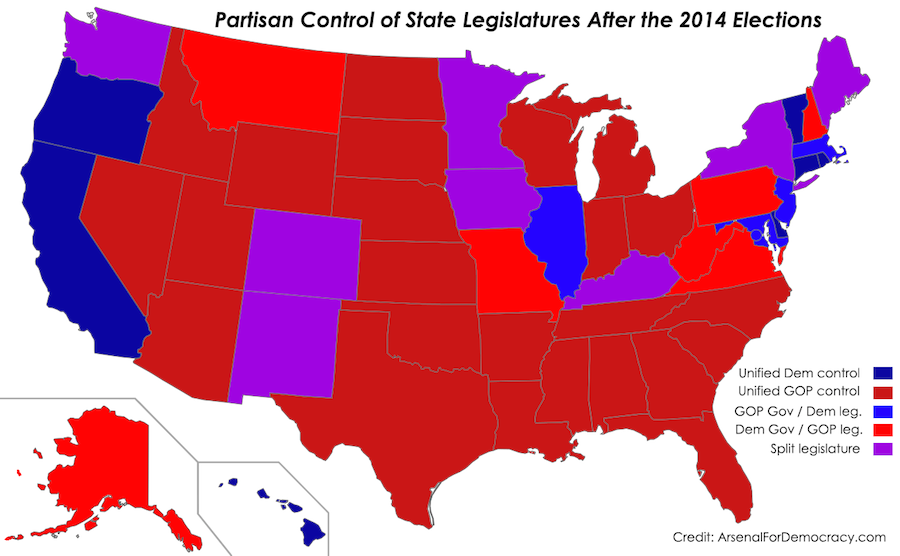The Supreme Court’s rulings two weeks ago on the Affordable Care Act and marriage equality have had a profound and immediate effect on Americans. But so has the Court’s less-discussed order to delay the implementation of a Texas law that would have effectively shut down all but ten Texas abortion clinics, leaving nearly one million women at least 150 miles away from their closest abortion clinic.

Map of 60-mile radius access limits around remaining Texas abortion clinics, under the suspended law, versus female population density. (Credit: @MetricMaps / Wikimedia)
The Texas law in question initially grabbed the nation’s attention thanks to a pair of pink sneakers and State Senator Wendy Davis, whose passionate filibuster lasted long enough to avoid the passage of the bill…for the day. Despite Senator Davis’s efforts, the bill passed in July 2013, as part of a second special session, by a margin of 19-11.
The first part of the bill took effect 90 days after it’s passage; it prohibited abortions after 20 weeks and required all doctors performing abortions to have admitting privileges at a local hospital. The Supreme Court’s order delays implementation of the second part of the bill, which requires all abortion clinics to meet the standards of an “ambulatory surgical center” – a set of stringent regulations on staffing, equipment, and the building itself.
Fund Texas Choice notes that 14 of Texas 36 abortion clinics closed due to the provision requiring doctors to have admitting privileges at a local hospital and only 10 clinics currently meet the standard of an ambulatory surgical center.
Some Texas lawmakers insist that these changes are designed to protect women’s health, while opponents have deemed it a thinly veiled effort to restrict a woman’s right to choose in the Lone Star State.
Abortion is an extremely safe medical procedure. A recent study in Obstetrics and Gynecology notes that women are 14 times more likely to die during or after childbirth than from abortion. In fact, in 2010, only 1 in 625 women who received in abortion at Planned Parenthood required an emergency room visit or blood transfusion. Still, Texas is one of 24 states that the Guttmacher Institute reports has regulations that go beyond what is medically necessary for patient safety.
The Supreme Court order is only temporary, however, and will expire if the Court decides not to hear the case during their 2015 season.
It is still unclear if the Court will hear this case, but if they do, a woman’s right to choose is sure to be in the crosshairs of the 2016 presidential election, and rightfully so: the problem is a lot bigger than Texas, as the other 23 states with similarly restrictive laws proves.
Despite the fact that half of Americans identified as pro-choice in a May 2015 Gallup Poll, states across the country continue to enact abortion restrictions in record numbers. During the years of 2011-2014, states passed 231 restrictions on abortions, limiting access to safe abortions from sea to shining sea. To put that in perspective, 189 restrictions had been passed in the ten years previous.
The increasingly stringent regulations on abortion access make it clear that women need a champion to protect the rights afforded to them by the 1973 Roe v. Wade ruling. That champion may come from the Supreme Court, or we may need to change the tide of state politicians.
This Texas law and the drastic effect it has on the number of abortion clinics in the state calls into focus the severity of medically unnecessary restrictions on abortion and the reality that they effectively limit access to safe abortions for many American women.









